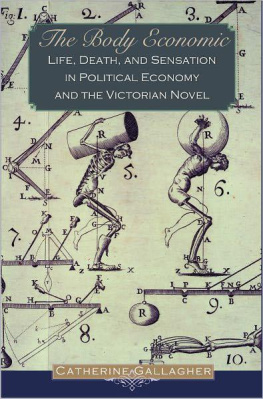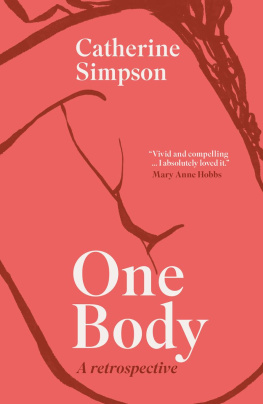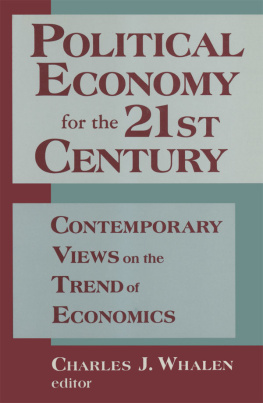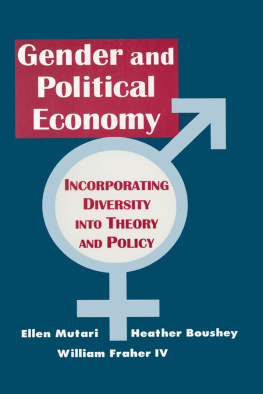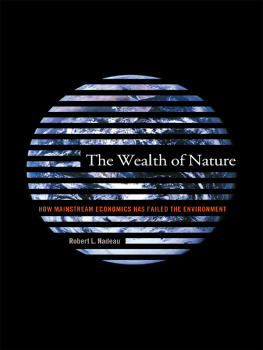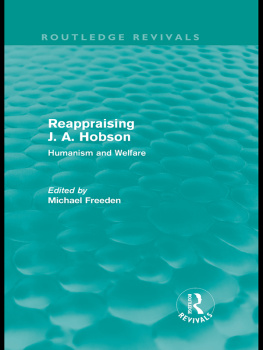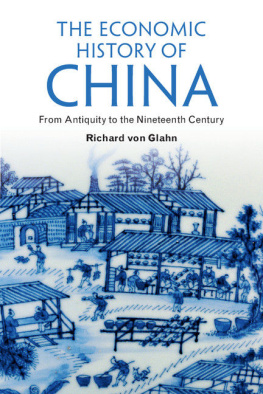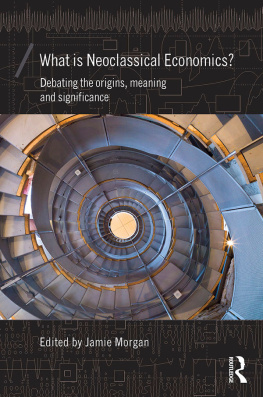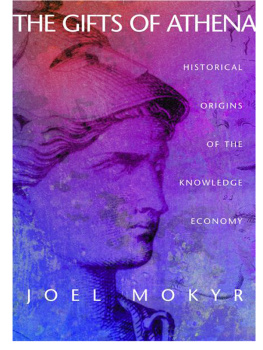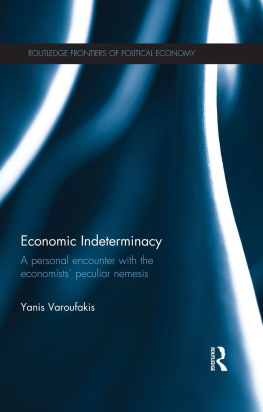The Body Economic
The Body Economic
LIFE, DEATH, AND SENSATION IN POLITICAL ECONOMY AND THE VICTORIAN NOVEL
Catherine Gallagher
PRINCETON UNIVERSITY PRESS PRINCETON AND OXFORD
Copyright 2006 by Princeton University Press Published by Princeton University Press, 41 William Street, Princeton, New Jersey 08540 In the United Kingdom: Princeton University Press, 6 Oxford Street, Woodstock, Oxfordshire OX20 1TW
All Rights Reserved
Third printing, and first paperback printing, 2008
THE LIBRARY OF CONGRESS HAS CATALOGED THE CLOTH EDITION OF THIS BOOK AS FOLLOWS
Gallagher, Catherine. The body economic : life, death, and sensation in political economy and the Victorian novel / Catherine Gallagher.
p.cm. Includes bibliographical references.
eISBN: 978-1-40082-684-1 1. English fiction19th centuryHistory and criticism.
2. Economics in literature. 3. Dickens, Charles, 18121870KnowledgeEconomics. 4. Eliot, George, 18191880KnowledgeEconomics. 5. EconomicsGreat BritainHistory19th century. 6. Great BritainEconomic conditions19th century. 7. Senses and sensation in literature.
8. Body, Human, in literature. 9. Death in literature. I. Title.
PR878.E37G35 2005 823'.8093553dc222005045825
British Library Cataloging-in-Publication Data is available
This book has been composed in Adobe Garamond Printed on acid-free paper. press.princeton.edu Printed in the United States of America 3 5 7 9 10 8 6 4
For Shana and Becca
CONTENTS
This study has benefited greatly from the colleagues and friends who read various chapters James Chandler, Kim Chernin, Frances Ferguson, Kevis Goodman, Stephen Greenblatt, Thomas Laqueur, David Miller, and Hilary Schor and from the three readers Patrick Brantlinger, James Eli Adams, and George Levine who recommended its publication to Princeton University Press. My editors at Princeton University Press, Hanne Winarsky and Terri OPrey, have been unfailingly patient and helpful. I am also thankful to the scholars at several universities and to the Dickens Universe at Santa Cruz for giving me the opportunity to develop these ideas in public lectures and for generously correcting my mistakes and suggesting new lines of argument. I would also like to thank the Cambridge University Library and the University of Californias Bancroft Library.
Thanks are also due to the young scholars who served as research assistants during the years that this project has gestated: BenjaminWidiss, Emily Andersen, and Amy Campion, and to the staff of the School of Social Science at the Institute for Advanced Study. Ryan McDermott and Leslie Walton read proofs and indexed with minute attention to detail. The research and writing were supported by the University of Californias Presidents Fellowship in the Humanities and by the Institute for Advanced Study at Princeton. Without the constant support of my department at Berkeley, this book would never have been finished.
As always, my husband, Martin Jay, was my best reader, toughest critic, and most loving supporter. My adorable grandchildren, Penelope, Frankie, and Sammy, kept my spirits up throughout the writing, and my daughters, Shana Lindsay and Rebecca Jay, gave me their help and encouragement. I dedicate this book to them.
A part of chapter 3 was first published a very long time ago in Zone (5 [1989]: 34565), and a portion of chapter 2 was first published even longer ago in Representations (14 [1986]: 83106).
The Body Economic
There was a time, back in the last century, when most literary critics despised nineteenth-century British political economy. Our disdainful view of it had many sources the American New Critics, the Leavisites, the Marxists, the early Victorian literati but it seldom came from any serious encounters with texts by political economists. We preferred to get them secondhand, already packaged as the direct ideological justification of a particularly rapacious capitalism. After all, we had a stake in perpetuating our own image as their humanistic antagonists, the professionals dedicated to the unique, nonfungible properties of things and the autotelic, noninstrumental nature of people. We were the Kantians (or Coleridgeans), they were the Benthamites, and we lacked John Stuart Mills reasons for attempting a dialectical synthesis.
It is difficult to say just why all of this began to change during the last three decades. The stress that deconstruction placed on displacement in the literary text the unstable connection between signifiers and signified and the relational nature of all meaning brought the economic logic of substitution much closer than it had been to the dynamics of textual analysis. Marxist ideology critique also began focusing more intently on the subtle ways in which poets, playwrights, and novelists, despite their overt proclamations, wrote within the dominant ideologies of their times. Reformulations of the concept of ideology also helped: it was seen to be less a set of explicit beliefs than a set of practices, which we repeat even while protesting against them, and which enfold almost inescapable underlying patterns of perception. The Foucauldian replacement of ideology critique with discourse analysis, moreover, allowed us not only to think beyond disciplinary borders to the organizing epistemes of a period but also to scrutinize the processes by which various discourses formed and differentiated themselves. The Foucauldian style of analysis had a particularly strong impact on nineteenth-century studies because that century was singled out as the period when the human sciences took their current form, bringing every aspect of human life into discourse. The discovery that literature played a part in the expansion of Man as a disciplinary object was then complemented by Bourdieus sociological analyses of how different textual practices are constituted in diacritical opposition to others, so that the very nature of literature lies not in its independent substance but in its distinction from and at times homologous duplication of intellectual practices like economics. These theoretical innovations were paralleled by new kinds of criticism devoted to the economics of literature, both studies of formal relations between literary and economic writing and studies of the historical development of literature as an economic activity.
Moreover, just as literary critics were exploring these topics, historians, political theorists, and even economists were revising and reinvigorating the history of economic theory. Instead of appearing to spring directly out of the ideological needs of industrial capitalism, the discipline we call political economy (that practiced by the classical economists, led by Adam Smith, Thomas Robert Malthus, and David Ricardo) has now been reconnected to the complex of late eighteenth-century intellectual endeavors gathered under the term moral philosophy (ethics, political philosophy, natural theology, conjectural history, and aesthetics) and has consequently acquired a pedigree that seems respectable to literary critics. We are also beginning to understand its central place among the developing human sciences of the nineteenth century, and its kinship especially with psychology and anthropology brings it closer to the orbit of nineteenth-century literature.
These investigations have produced a lively new subfield of nineteenth-century British studies, combining literary and intellectual history. Works by Boyd Hilton, Stefan Collini, Donald Winch, Mary Poovey, Regenia Gagnier, Christopher Herbert, Philip Connell, Howard Caygill, and Maureen McLane have demonstrated that political economists and their literary antagonists had a great deal in common, which they were frequently unwilling to recognize. The present study is indebted to these earlier works, and it tries to combine their best aspects. For example, Ive followed the lead of recent intellectual historians by taking political economy seriously as a discipline and not implying that it was merely a form of early industrial capitalist apologetics. This has led me to spend more time examining controversies among political economists than literary critics normally do; the books second chapter, for example, dwells among political economists exclusively. It has also led me to give them the benefit of the doubt and assume that their theories were motivated by the same drive that animates most of us as professional intellectuals: a genuine desire to understand the phenomena they observed. It goes without saying that they did so within the terms and according to the protocols of certain historically determined mental operations (otherwise known as ideologies), which were by definition outside of their purview.
Next page
